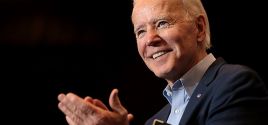Austrian Influence: China and the WSJBy John P. CochranMises.org Oct. 15, 2012 |
Popular 
Biden Commutes Sentences of 37 of 40 Federal Death Row Inmates - Excludes Robert Bowers, Dylann Roof

U.S. 'Shoots Down Own Jet' Over Red Sea in 'Friendly Fire Incident'

Ohio Senate Passes Bill Aimed at Outlawing Criticism of Israel, Criminalizing Gospel

Putin Accuses 'Ethnic Jews' of Tearing Russian Orthodox Church Apart

Saudi National Rams Car Into Germans at Christmas Market in Suspected Terrorist Attack [UPDATED 2X]
 More signs that the writings of Hayek, Mises, and modern Austrian economists are beginning to have some influence even in places where it might be least expected despite the efforts of Professors DeLong and Krugman to discredit these ideas. Today's Wall Street Journal "Weekend Interview", "Zhang Weiying: China’s Anti-Keynesian Insurgent" highlights the work of this Chinese economist's explicit application of work of Hayek and the Austrian School to the criticize and illustrate the ineffectiveness Keynesian based economic policy in China. Some highlights: Zhang Weiying’s warnings that stimulus spending would lead to malinvestment were once ignored. Now official ministries invite the follower of Hayek to speak.Better would be a day when the interview featured a Joe Salerno, a Roger Garrison, a Richard Ebeling, or a Pete Boettke, just to name a few possibilities, on the failure of Keynesianism and socialism in the people's republic of the U. S. or an Adrian Ravier on the impact of Austrian economics in Latin America. Even more relevant for today's economic conditions would be a feature on Robert Higgs explaining how regime uncertainty retards investment and real entrepreneurial planning slowing recovery or triggering a recession. |



